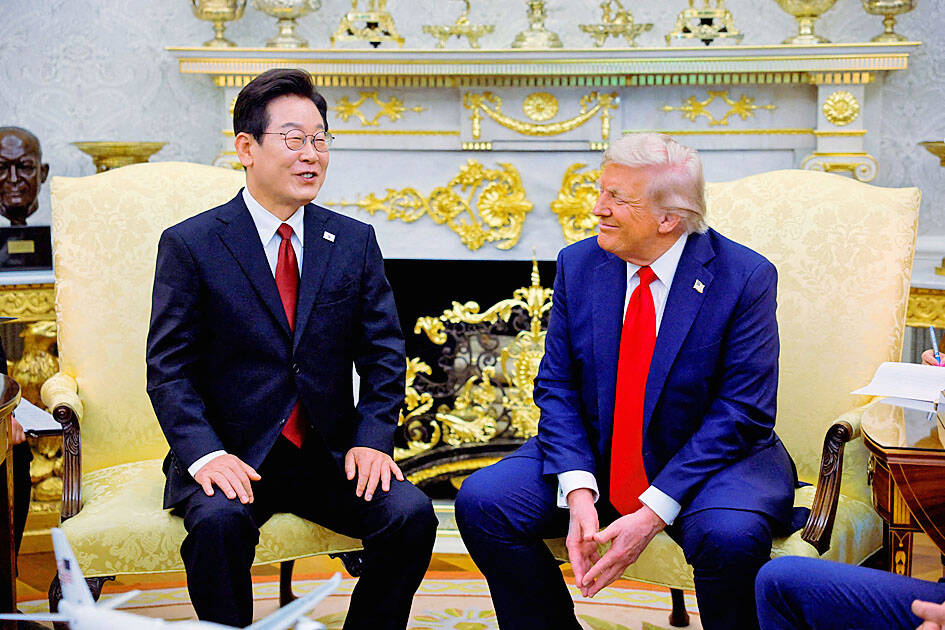CURRENCY SWAP: ‘
It is objectively and realistically not a level we are able to handle,’ an official said, with Seoul seeking a loan and FX deal to finance the investment
South Korea cannot provide the US with US$350 billion in cash as suggested by Washington under a deal to lower tariffs, a senior official said.
“Our position is not a negotiating tactic,” South Korean National Security Adviser Wi Sung-lac said in a Channel A News television interview on Saturday evening.
“It is objectively and realistically not a level we are able to handle,” he added. “We are not able to pay US$350 billion in cash.”

Photo: Reuters
Seoul and Washington agreed in July to a US$350 billion investment pledge as part of a broader trade deal to lower US tariffs to 15 percent from 25 percent, but the two sides remain divided over how it should be structured.
South Korean officials are seeking loans and a bilateral currency swap arrangement with the US to soften the economic impact, saying that the sum represents more than 80 percent of its foreign reserves.
US Secretary of Commerce Howard Lutnick has reportedly told South Korean officials that Washington prefers the investment in cash rather than loans.
US President Donald Trump recently described the contribution as “up front.”
South Korean President Lee Jae-myung said earlier this month that the country’s economy could fall into crisis rivaling its 1997 meltdown if his government accepted the US demands without safeguards.
Lee told US Secretary of the Treasury Scott Bessent on Wednesday in New York that the Asian country needs a foreign exchange swap to make the US$350 billion investment it has pledged in the tariff talks.
Wi on Saturday said the government is exploring alternatives and hopes for progress when the two leaders meet at the APEC Summit in Gyeongju, South Korea, next month.
Separately, the US has agreed that South Korea is not manipulating its currency for trade advantage, a spokesperson for Lee said yesterday.
The two allies agreed that Seoul does not fall under the manipulator designation that the US Department of the Treasury announces in reports twice a year, Kang Yu-jung told a news conference in Seoul.
The administration of former US president Joe Biden added South Korea to a manipulation monitoring list in November last year due to its large current account surplus and its sizable trade surplus with the US. The Trump administration kept Seoul on the list in June.
Under a 2015 US law, Washington can take “remedial action” against countries that do not “correct the undervaluation of their currency and trade surplus with the United States.”
Additional reporting by Reuters